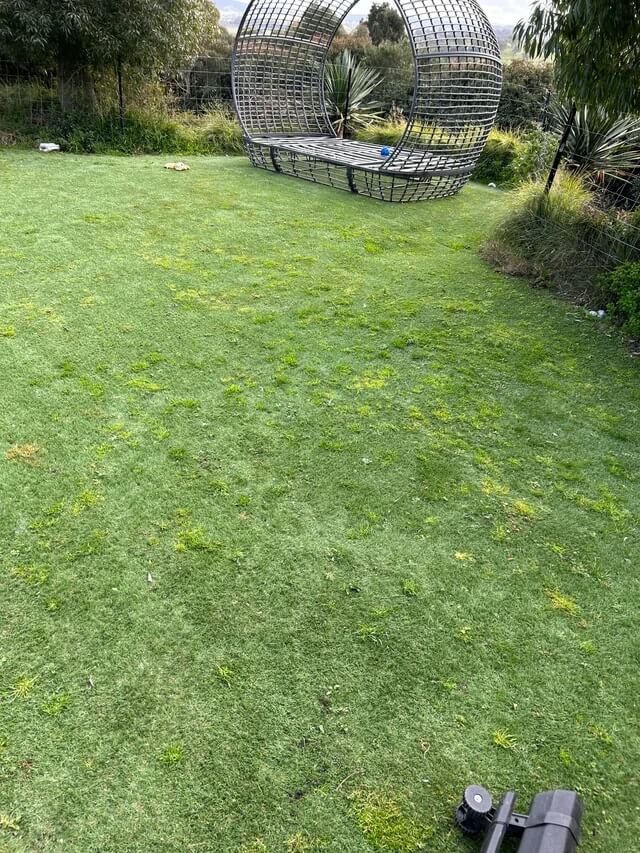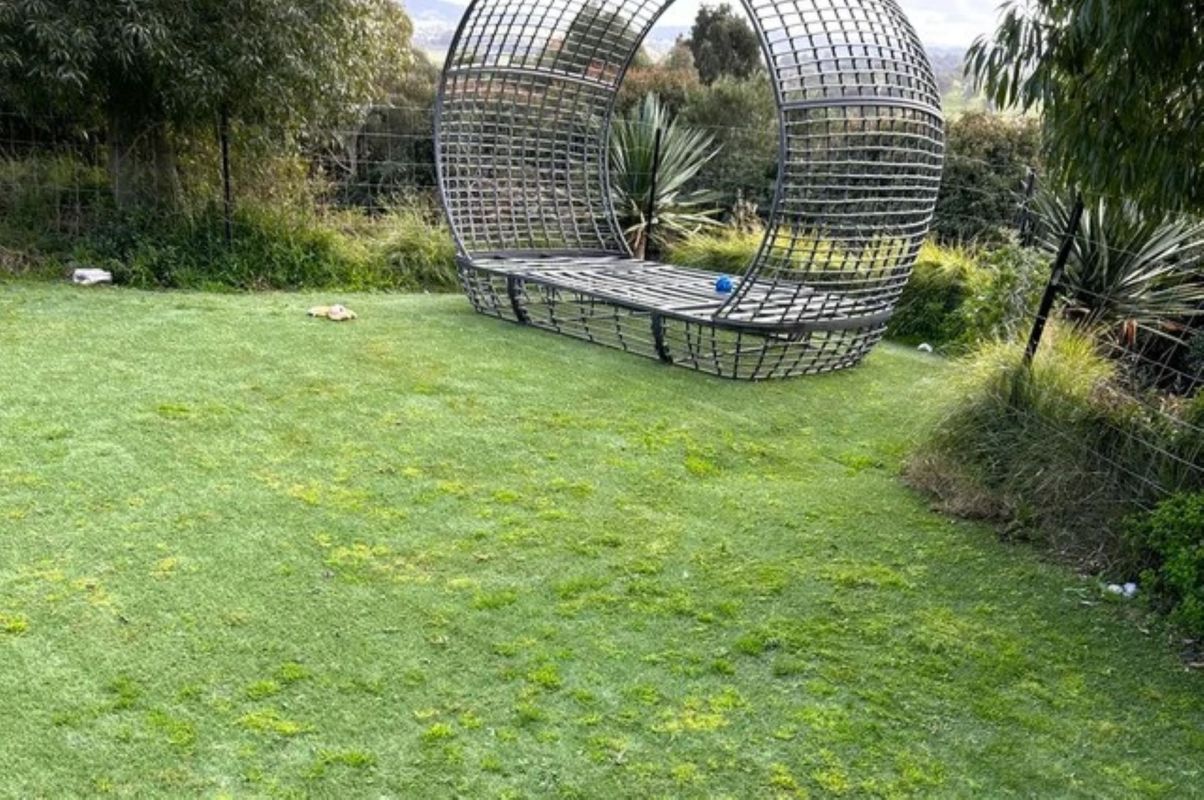Artificial turf took off during the COVID-19 pandemic as a low-maintenance grass replacement. Turns out, that was just wishful thinking.
In the case of a Redditor from Melbourne, Australia, one turf yard presented a problem.

The poster was asked to help find a solution to weeds growing through a turf lawn.
"It's quite a large area," they wrote. "It's in mid bushland so they're getting all types of weed brought by birds and wind."
Since avoiding the synthetic material in the first place was out of the question, commenters suggested everything from glyphosate to power brooming with a resand. Pouring boiling water over the area and pressure washing were other suggested fixes.
"I'm pretty sure the weeds include nut grass which is not at all easy to get rid of," one commenter wrote. "Pre-emergem herbicide should work, but that's not a nice kind of chemical to introduce to your yard."
Another shared their opinion on the artificial grass and said: "The stuff should be banned."
The "low maintenance" trap has proved inaccurate as turf requires frequent maintenance and can even lower property values by 5 percent. Other problems include a heat-trapping effect; lack of recyclability; and issues for biodiversity, pollinators, and other ecologically beneficial wildlife.
Artificial turf is made of plastic, and it sheds microplastics and forever chemicals. These toxins and others create hazards to human health.
"There's just too much plastic in our beautiful planet," one user said. "If I had such an expansive space I'd either sow grass for the kids to play on or plant the entire space with native plants that attract birds, insects, and other native fauna."
Another wrote: "Rip it up and see if you can give it away for free so [it] does not end up in land fill. Try to avoid buying large plastic items … All life is part of the food chain and installing a plastic yard has broken this circle [it's] essentially a desert for insects/critters … return it to what it should be your yard will be happier and healthier."
Join our free newsletter for easy tips to save more, waste less, and help yourself while helping the planet.









